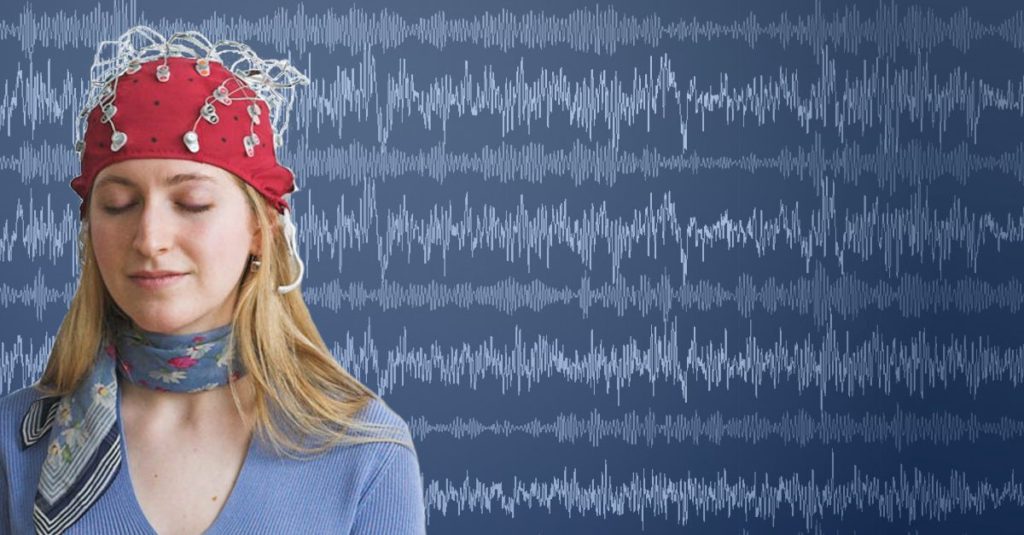Quick Hits
Daily brief research updates from the cognitive sciences

Mindfulness meditation has been shown to be beneficial for many things such as lowering stress, increasing wellbeing but also making better decisions and being less biased. Not bad.
However, some of these are attentional topics and the question a group of researchers from the University of California wanted to answer is how much and, how can mindfulness influence pain.
For this Riegner et al. recruited 40 participants all who had no experience of meditation. First their brain responses to pain were measured by being scanned while painful heat was applied to their legs. They were then split into two groups.
One group underwent four twenty-minute mindfulness training sessions where they were encouraged to focus on their breath and reduce self-referential processing by first acknowledging their thoughts, sensations and emotions but then letting them go without judging or reacting to them. The other group, the control group, listened to an audio book for their twenty-minute sessions.
They were then brought back to have their brains scanned again with the same painful heat stimulus. However, the meditation group was asked to meditate during this process while the control group just rested with their eyes shut.
So, you may wonder now whether this changed their pain perception and how?
The first answer is yes, it did change the pain perception, and quite dramatically. Both pain sensation and pain unpleasantness reduced by about 33%. That’s a big jump particularly considering this was only four twenty-minute sessions with meditation novices.
The more interesting part, maybe, is they were also able to see the precise mechanisms in the brain.
What they found is that those who had more reduced pain had decoupled networks. Specifically, between a region known as the thalamus and the default brain network. The thalamus is like a relay station connecting the body’s sensation to the rest of the brain. The default network and particularly a region called the Precuneus is involved in general mind wandering but also consciousness.
This decoupling seems to disconnect the sense of self from the physical sensation – a common goal of such mindfulness meditation.
This is impressive because it shows that mindfulness meditation can be effective against pain and is a quick and cheap method. It also empowers people and gives them a sense of control. What’s more this highlights various issues particularly with debilitating chronic pain, which is very common. Here pain can become a sense of identity for these people leading to a vicious circle of negativity, decreased wellbeing and more pain and suffering.
So, another one in the hat for the power of mindfulness meditation!

Andy Habermacher
Andy is author of leading brains Review, Neuroleadership, and multiple other books. He has been intensively involved in writing and research into neuroleadership and is considered one of Europe’s leading experts. He is also a well-known public speaker speaking on the brain and human behaviour.
Andy is also a masters athlete (middle distance running) and competes regularly at international competitions (and holds a few national records in his age category).
Reference
Gabriel Riegner, Grace Posey, Valeria Oliva, Youngkyoo Jung, William Mobley, Fadel Zeidan.
Disentangling self from pain: mindfulness meditation-induced pain relief is driven by thalamic-default mode network decoupling.
Pain, 2022; Publish Ahead of Print
DOI: 10.1097/j.pain.0000000000002731
More Quick Hits
Brain Scans Can Predict Your Political Affiliation
Quick HitsDaily brief research updates from the cognitive sciences rain scanning of political partisans is not new and it has long been reported that brain scans can predict political affiliation. But those studies were scans of political partisans...
Children with Same-Sex Parents Are Socially Well-Adjusted
Quick HitDaily brief research updates from the cognitive sciences his is not the first study to report that children of same-sex parents are well adjusted, there are plenty, but it is one of the first to be representative and hence gives some...
Simple Exposure to New Things Makes Your Brain Ready to Learn
ouldn’t it be great if we could learn things with no effort? Well, actually we often do, and children learn vast quantities of information, and knowledge with little to no effort – think of how well we learn languages which become fiendishly...
So, Can Cranberries Improve Memory?
tend to be hesitant to report on studies of single foods doing amazing things (because many do), but this piece of research still caught my eye. So, what did this group of researchers from the University of East Anglia find? Well, they...
The Real Problem with Social Media: It Induces Dissociative States
Quick HitsDaily brief research updates from the cognitive sciences ocial media seems to hijack our brains – or at least according to popular narratives. Most of us have experienced this where you get stuck in an endless stream of content,...
Adventurous Play Boosts Mental Resilience in Kids
o, a simple cheap way to help your kids improve all life skills and strengthen mental wellbeing. Too good to be true? Well, this piece of research, just out, finds a fascinating correlation with mental health and kids. This correlation was...






